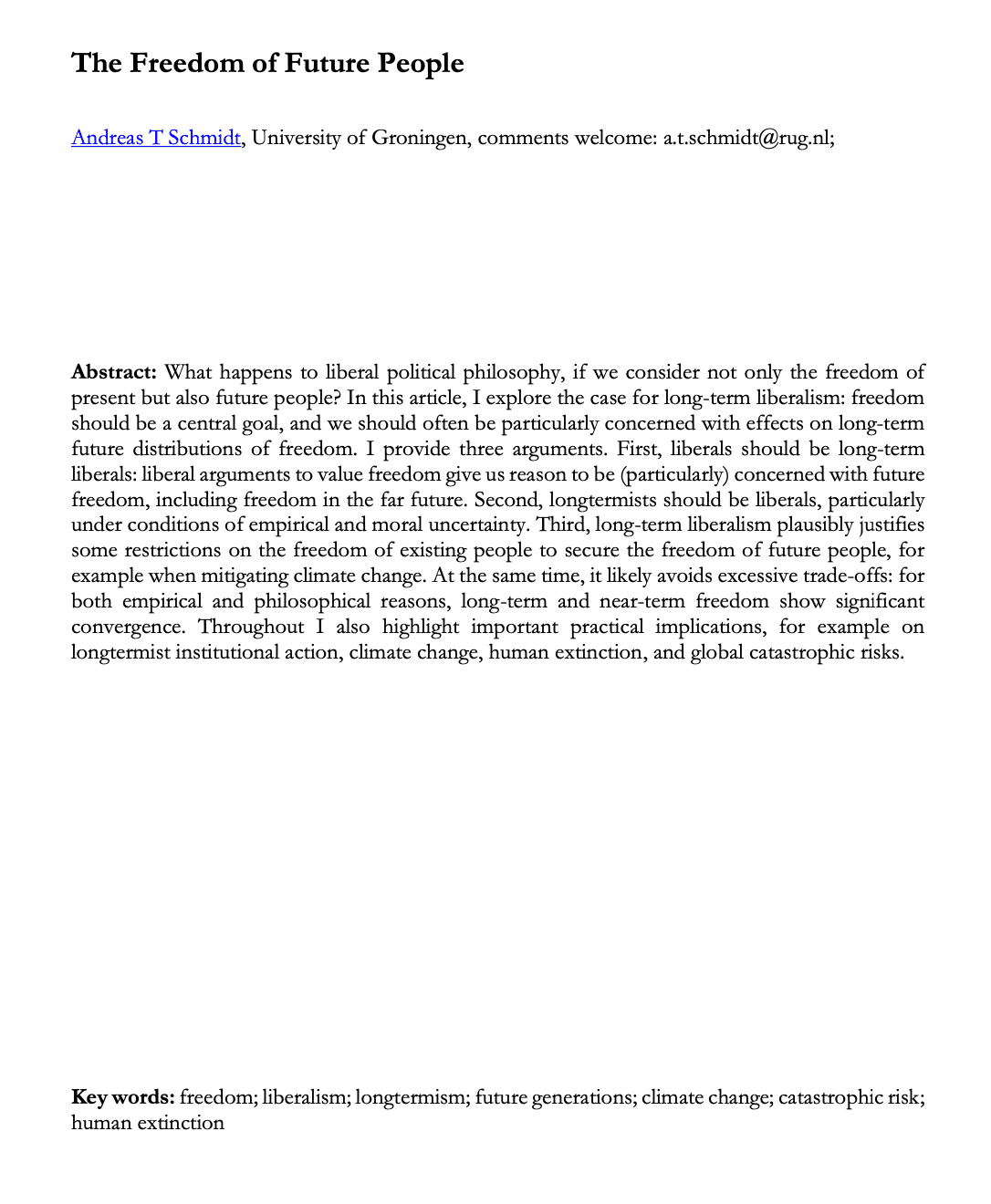The freedom of future people
Andreas T Schmidt (University of Groningen)
GPI Working Paper No. 10-2023
What happens to liberal political philosophy, if we consider not only the freedom of present but also future people? In this article, I explore the case for long-term liberalism: freedom should be a central goal, and we should often be particularly concerned with effects on long-term future distributions of freedom. I provide three arguments. First, liberals should be long-term liberals: liberal arguments to value freedom give us reason to be (particularly) concerned with future freedom, including freedom in the far future. Second, longtermists should be liberals, particularly under conditions of empirical and moral uncertainty. Third, long-term liberalism plausibly justifies some restrictions on the freedom of existing people to secure the freedom of future people, for example when mitigating climate change. At the same time, it likely avoids excessive trade-offs: for both empirical and philosophical reasons, long-term and near-term freedom show significant convergence. Throughout I also highlight important practical implications, for example on longtermist institutional action, climate change, human extinction, and global catastrophic risks.
Other working papers
Egyptology and Fanaticism – Hayden Wilkinson (Global Priorities Institute, University of Oxford)
Various decision theories share a troubling implication. They imply that, for any finite amount of value, it would be better to wager it all for a vanishingly small probability of some greater value. Counterintuitive as it might be, this fanaticism has seemingly compelling independent arguments in its favour. In this paper, I consider perhaps the most prima facie compelling such argument: an Egyptology argument (an analogue of the Egyptology argument from population ethics). …
Maximal cluelessness – Andreas Mogensen (Global Priorities Institute, Oxford University)
I argue that many of the priority rankings that have been proposed by effective altruists seem to be in tension with apparently reasonable assumptions about the rational pursuit of our aims in the face of uncertainty. The particular issue on which I focus arises from recognition of the overwhelming importance…
The scope of longtermism – David Thorstad (Global Priorities Institute, University of Oxford)
Longtermism holds roughly that in many decision situations, the best thing we can do is what is best for the long-term future. The scope question for longtermism asks: how large is the class of decision situations for which longtermism holds? Although longtermism was initially developed to describe the situation of…

